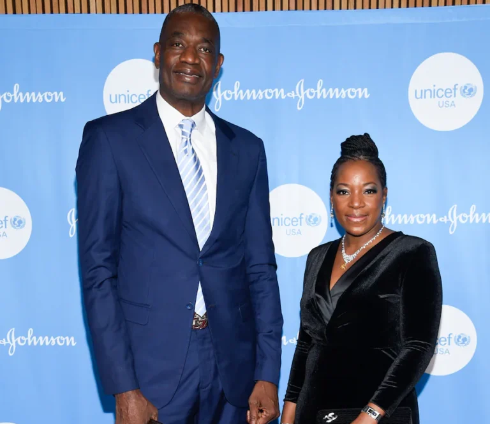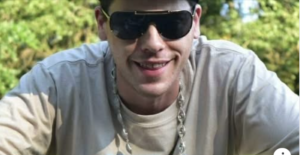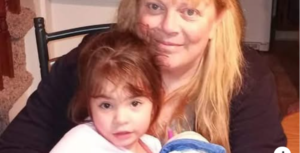Mutombo Dikembe Death: Dikembe Mutombo, a basketball Hall of Famer who dominated on defense at Georgetown and in the NBA, turning opponents away from the rim while building an off-court legacy through his humanitarian work in Central Africa, died Sept. 30. He was 58.
According to the family, Mutombo Dikembe passed away from brain cancer. Dikembe Mutombo, a shot-blocking, finger-wagging basketball Hall of Famer who dominated on defense at Georgetown and in the NBA, driving opponents away from the rim while leaving an off-court legacy through his humanitarian work in Central Africa, died on September 30. He was 58.
The cause was brain cancer, according to a statement from National Basketball Association Commissioner Adam Silver. The statement did not specify where Mr. Mutombo died. Mr Mutombo, a 7-foot-2 center with size-22 sneakers and a gravelly basso profundo voice, was an outsized presence in the NBA for 18 seasons, scooping up rebounds, swatting down opponents’ attempts and tormenting competitors with his distinctive finger wag, like a teacher punishing a misbehaving student. By the time he retired in 2009, he had blocked 3,289 shots, ranking second only to Hakeem Olajuwon.
Who Was Mutombo Dikembe?
Mr. Mutombo was raised in the Democratic Republic of Congo, then known as Zaire, and spoke nine languages, but when he came to the United States in 1987 to study at Georgetown University, he hardly comprehended English, let alone zone defense. He had planned to study medicine but instead chose basketball under Hoyas coach John Thompson, who was known for developing gritty, defensive-minded big players like Patrick Ewing.
Mr. Mutombo developed into a top prospect, setting a Big East conference record by swatting down 12 shots in one game. He was selected fourth overall by the Denver Nuggets in the 1991 NBA draft and went on to flourish for the Atlanta Hawks and Philadelphia 76ers while also becoming one of the league’s finest defenders, leading the league in rebounding for two seasons and blocks for three.
In his prime, he averaged 4.5 blocks per game. As opponents attempted to trick him out, he would raise his arms upwards and perfectly time his leap, tipping the ball slightly off course or sending it flying into the stands. Unlike centers Shaquille O’Neal and David Robinson, with whom he competed for NBA all-star honors, Mr. Mutombo was never a prolific scorer. He averaged 16.6 points per game in his greatest offensive season as a rookie. Critics also pointed out that, whether on purpose or not, he had a habit of elbowing opponents in the face, resulting in stitches and fractured bones.
Mutombo Dikembe Was A Great Player
Mr. Mutombo argued that the injuries were unintentional, and that critics expected him to play as if he were 6 feet tall, with his arms at his sides rather than up in the air. O’Neal seems to concur, telling Sports Illustrated, “He’s pretty clean.” “He’s just long.” Mr. Mutombo, along with Rudy Gobert and his opponent Ben Wallace, is one of only three players to have won NBA Defensive Player of the Year four times. He was named to eight all-star teams, appeared in the NBA Finals twice, and averaged 9.8 points and 10.3 rebounds per game over his career, which helped drive him into the Naismith Memorial Basketball Hall of Fame in 2015.
By then, he was well-known for his off-court involvement, and he was the only NBA player to receive the J. Walter Kennedy Citizenship Award for community work twice. He was a United Nations goodwill ambassador, a member of the Special Olympics board of directors, and a frequent traveler to Congo to make public-service announcements for polio vaccination.
When he was a player, he went to his native country during the offseason to lead basketball clinics and sponsored the national women’s basketball team’s trip to the 1996 Olympics in Atlanta. He oversaw the development of a 300-bed hospital, which opened in Kinshasa, Congo’s capital, in 2007. The hospital was named after his mother, who died of a stroke ten years ago after being unable to seek medical attention due to a citywide curfew.
Mutombo Dikembe Death: Basketball Hall of Famer and humanitarian has died from brain cancer
Mr. Mutombo spent a decade trying to fund and build the $29 million hospital, personally providing $15 million and requesting contributions from other NBA players. Faida Mitifu, the Congolese ambassador at the time, told USA Today that the hospital was “a godsend” for the community, and President George W. Bush lauded Mr. Mutombo as an example of “heroic kindness, courage, and self-sacrifice” during his 2007 State of the Union speech.
Some coaches claimed that his offseason activities were harming his career since they kept him out of the gym and distracted him from improving his hook shot or ballhandling. However, Mr. Mutombo hinted that his opponents had it wrong: basketball, he said, was merely “a vehicle that I used to get me where I’m going.”
Mutombo Dikembe Biography Explained
Dikembe Mutombo Mpolondo Mukamba Jean Jacque (sometimes spelt Jean-Jacques) Wamutombo was born in Kinshasa on June 25, 1966. Some of his names originated from family members, he claimed, including an uncle who noted that Mr. Mutombo was frail as a toddler and might be “broken like a banana.” Mr. Mutombo says that statement encouraged him to add his first name, which means banana in Congo.
His father was a teacher and school administrator, while his mother was a homemaker who sold Coke bottles in the Kinshasa stadium where Muhammad Ali defeated George Foreman in the 1974 “Rumble in the Jungle.” “She made a lot of money that night,” Mr. Mutombo remembered.
Deke, as his friends called him, preferred football and martial arts above basketball. He was coaxed onto the court by an elder sibling at 17, when he was already about 7 feet tall. It had an unfortunate start: he stumbled during a drill, cutting open his chin and aggravating his mother. He gave up for a while, but he resumed playing on concrete outside courts while attending a Jesuit high school.
An official from the United States Agency for International Development was drawn to Mr. Mutombo’s performance and gave Thompson a videotape of him. “The boy had a rag tied around his head, was playing on what looked like grass, and was blocking all kinds of shots,” Thompson wrote in his 2020 autobiography, “I Came as a Shadow.” Mr. Mutombo, who was about 21, quickly boarded a plane to Washington, where he spent his first year at Georgetown learning English and playing intramural basketball.
He joined Thompson’s team as a sophomore, alongside fellow big man Alonzo Mourning, a future Hall of Famer. They blocked so many shots together that fans formed a cheering section, “Rejection Row,” to commemorate each swat. Mr. Mutombo was a quick scholar, both on and off the court. He studied in languages and diplomacy, earning his bachelor’s degree the same year he was draughted into the NBA. He also interned at Congress and the World Bank.
Mutombo Dikembe NBA Journey
He was hesitant to join the NBA until Thompson introduced him to Bill Russell, who won 11 championships with the Boston Celtics and “convinced me I could play,” Mr. Mutombo recalled. Mr. Mutombo had early success in Denver, as the Nuggets upset the Seattle SuperSonics in the first round of the 1994 playoffs, marking the first time a No. 8 seed defeated a No. 1. Later, he teamed up with high-scoring guard Allen Iverson in Philadelphia, reaching the NBA Finals in 2001 but losing to the Los Angeles Lakers after five games.
He returned to the Finals two years later, coming off the bench during an injury-plagued season for the New Jersey Nets, who lost the series 4–2 to the San Antonio Spurs. when a year with the New York Knicks, he retired as a Houston Rocket at the age of 42, when many of his friends had left the league. He had been playing for so long because he had an extended family to support.
Mutombo made news in 1994 when he called off his engagement the day before the wedding because his fiancée refused to sign a prenuptial agreement, according to a Washington Post report. Two years later, he married Rose Mutombo Kiese, a lawyer and politician from Congo. They had seven children, including four nieces and nephews who they adopted. Ryan, one of their kids, is a college basketball player who transferred to Georgia Tech this year after three seasons at Georgetown. Information about survivors was not immediately available.
Mutombo Dikembe As A Businessman
Mr. Mutombo founded a company to sell coffee grown on women-led farms in Congo, but his commercial performance was uneven. According to a 2011 United Nations investigation, he and a colleague sought to buy $30 million in gold from merchants in Kenya, but they learnt that the money, much of which was later determined to be counterfeit, was controlled by Congolese warlord Bosco Ntaganda. Ntaganda profited from the transaction and was eventually convicted of war crimes.
According to an article published in Atlantic magazine, Mr. Mutombo and his business partner, Kase Lawal, shown a “almost total lack of due diligence” in this matter. Mr. Mutombo remained a fixture in the NBA long after he retired from the sport, working as the league’s first global ambassador and promoting basketball internationally. He joked that he was searching for the next Mutombo.
Mr. Mutombo was frequently questioned about his signature finger wag, which he deployed to humorous effect while starring in a Geico commercial and making an appearance in Eddie Murphy’s film “Coming 2 America.” Although league officials had grown tired of the taunt by the late 1990s, when they began calling technical fouls on Mr. Mutombo for unsportsmanlike behaviour, he had discovered a loophole: instead of glaring down opponents and waving a finger, he looked into the audience.
Mutombo Dikembe Obituary and Funeral Arrangements will be Released by the Family



